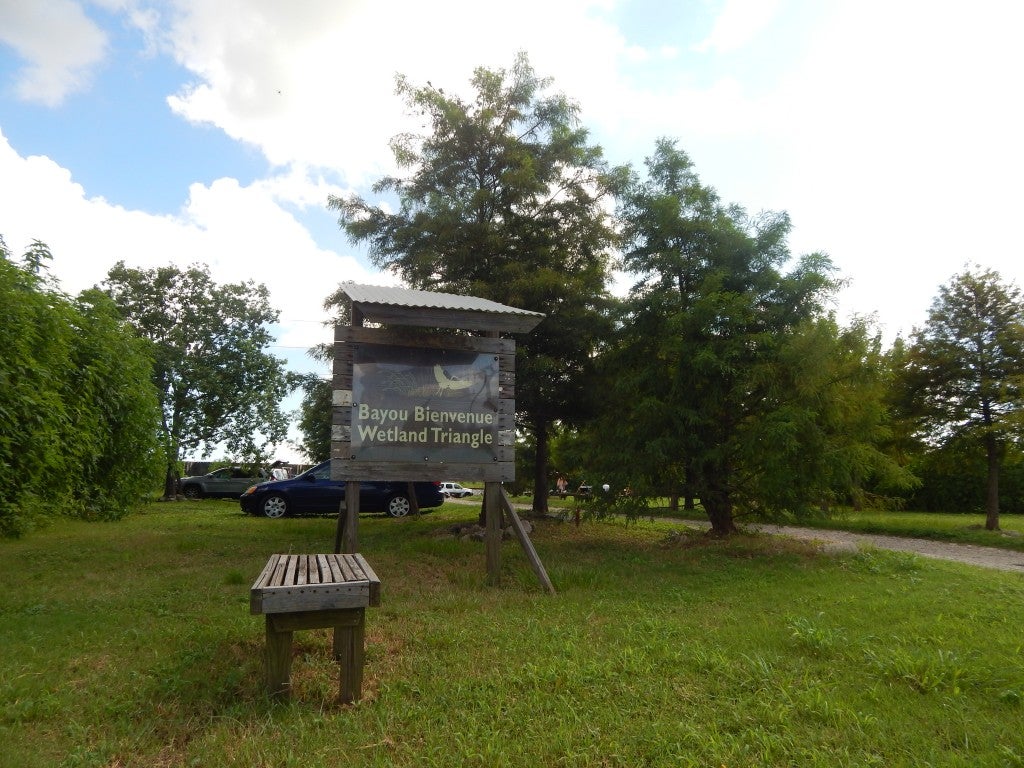Service Day at the Bayou Bienvenue Wetland Triangle
The platform at the end of Caffin Avenue in the Lower Ninth Ward over looks Bayou Bienvenue Wetland Triangle. The Wetland Triangle, which makes up 400 acres of the 30,000 acre Central Wetlands Unit, is where Bayou Bienvenue begins to snake along the wetlands that make up the border of Orleans and St. Bernard Parishes and eventually ends in Lake Borgne. Once a thriving cypress swamp, the Triangle provided the adjacent neighborhood with fishing, trapping, timber and recreation. This important natural resource was lost when the Mississippi River Gulf Outlet (MRGO) shipping channel was completed in the 1960s and allowed saltwater to enter the mostly freshwater ecosystem. As the saltwater killed the swamp trees, such as bald cypress, the Triangle turned to open water.
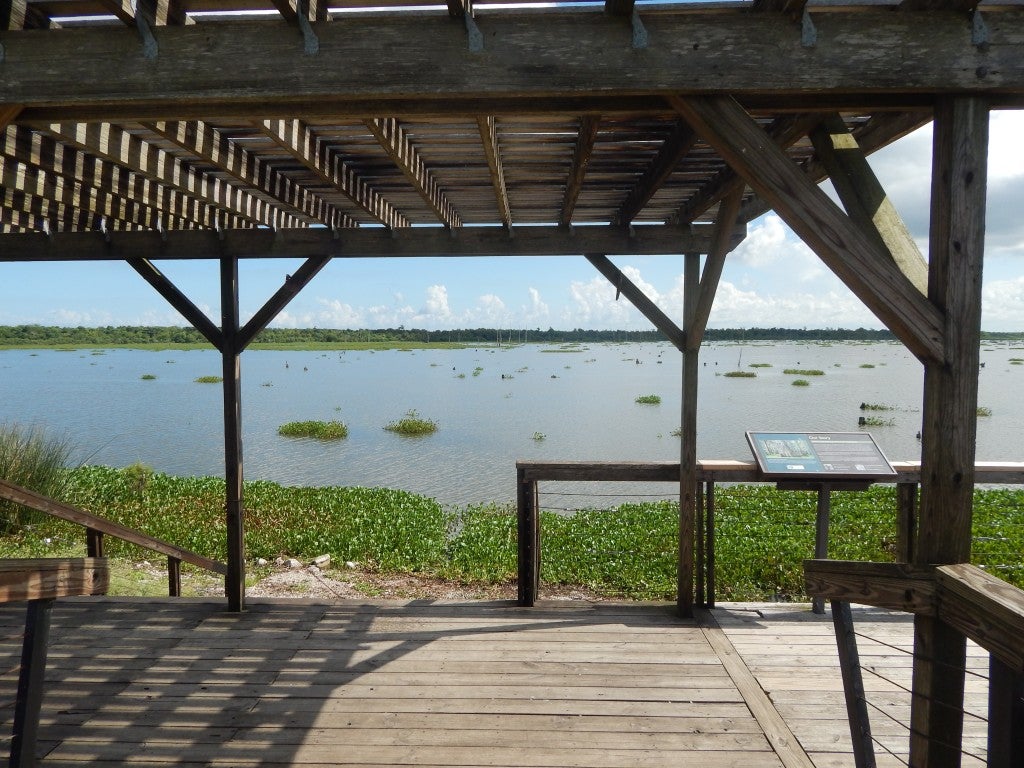 Beautiful viewing platform overlooking the Wetland Triangle.
Beautiful viewing platform overlooking the Wetland Triangle.
Often called a “ghost swamp”, the dead cypress trees can still be seen from the platform. Just five miles from the heart of New Orleans, the platform provides a view into the crisis that is happening across the coast in Louisiana as we continue to lose our wetlands.
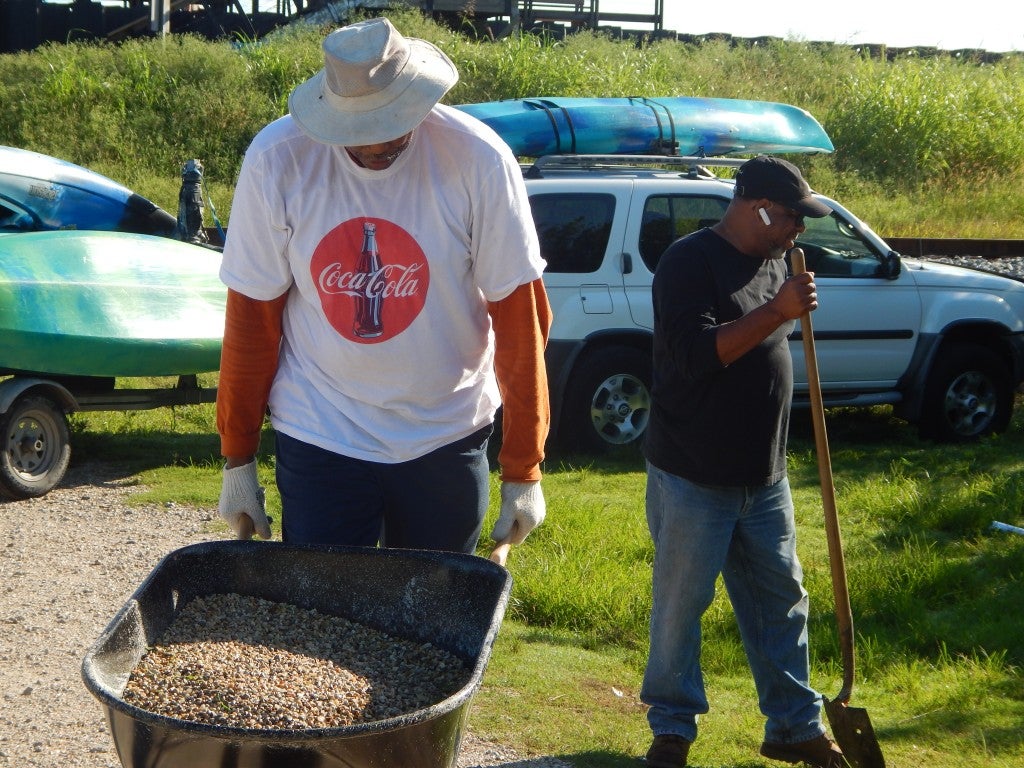 Volunteers working to restore the viewing platform area.
Volunteers working to restore the viewing platform area.
Early in the morning on July 30th, 2016 a group of volunteers met at the platform to give the informal park some attention and care. Sponsored by the MRGO Must Go Coalition and the Lower Ninth Ward Center for Sustainable Engagement and Development (CSED), volunteers came from the nearby neighborhoods and from local community and environmental groups to lend a hand.
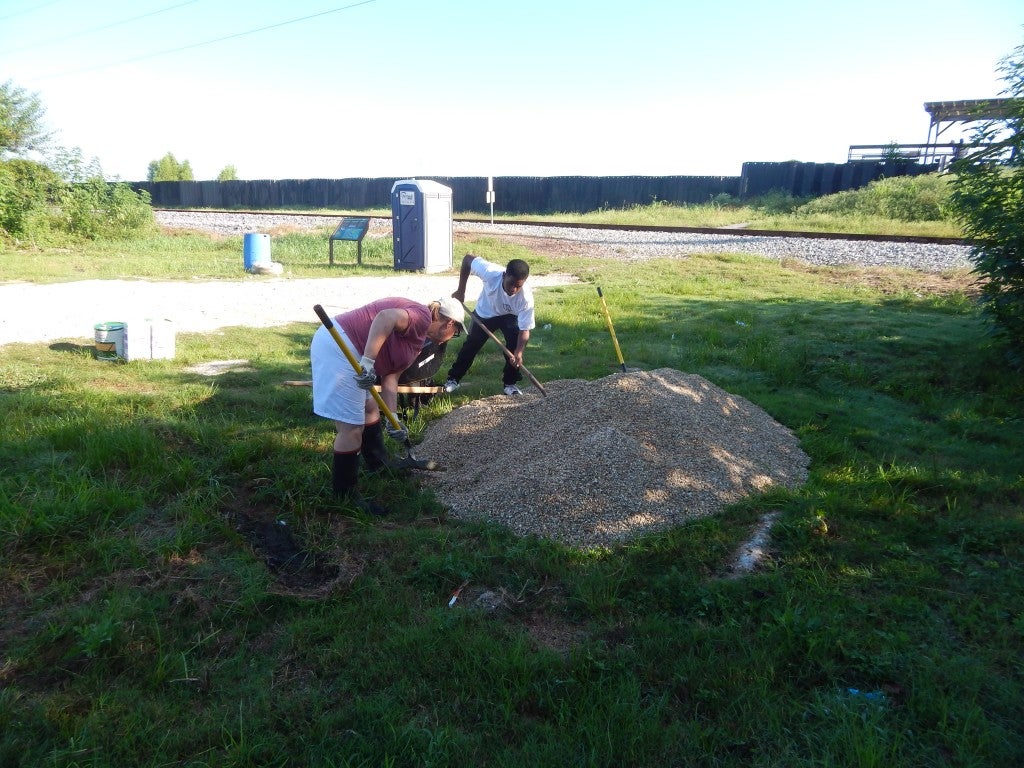 Shoveling gravel to restore the viewing area.
Shoveling gravel to restore the viewing area.
As with most roads in the greater New Orleans area – the driveway and parking lot had become uneven and pocked with potholes over time. Despite the heat the group moved 10 tons of gravel to fill the worst holes.
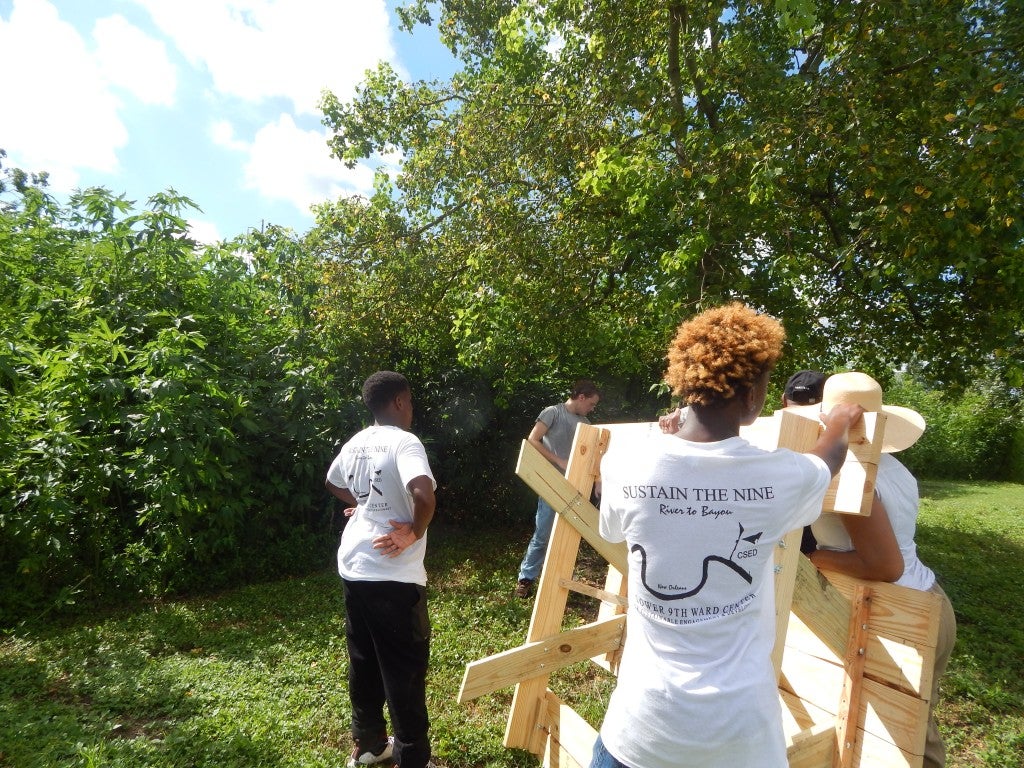 Sustain the 9 members working to build new picnic tables.
Sustain the 9 members working to build new picnic tables.
The team of volunteers constructed new picnic tables for visitors who will now be able to come enjoy a place to sit in the shade and enjoy their lunch.
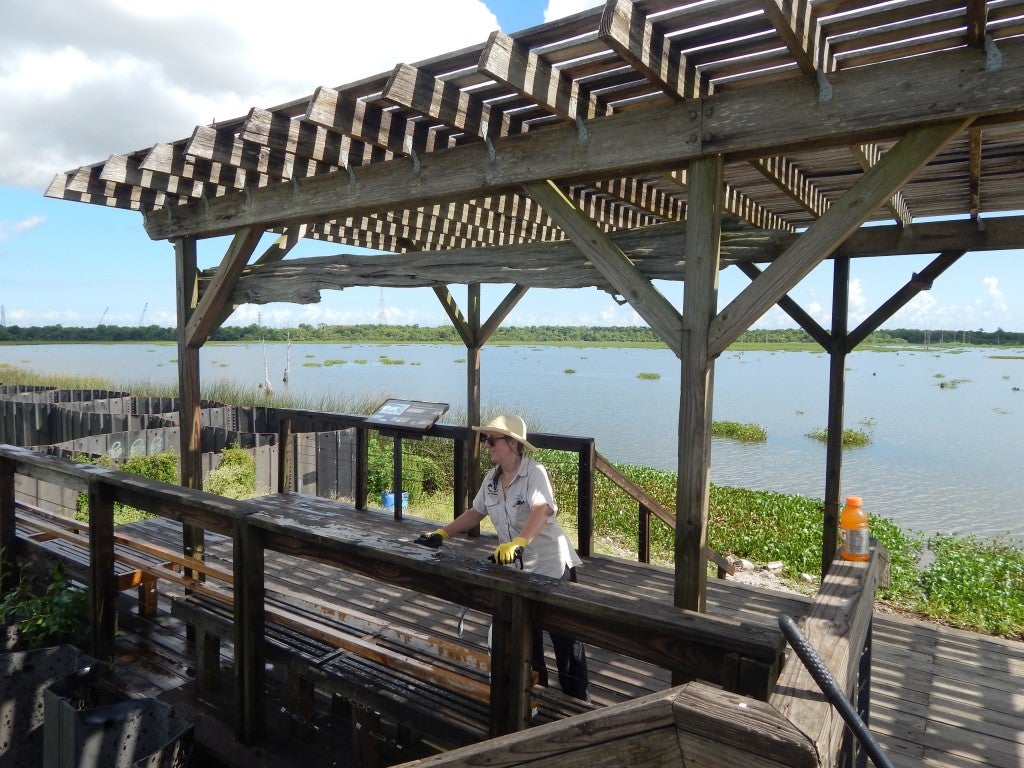 Resealing the viewing platform.
Resealing the viewing platform.
The platform itself also received a new coat of sealant to protect it against the elements. The platform was originally built in 2008 by architecture students from the University of Colorado with support from local residents and community groups. A fire destroyed part of the platform in 2009, but only a few days went by before neighborhood leaders, local NGOs and academics studying the triangle had it repaired.
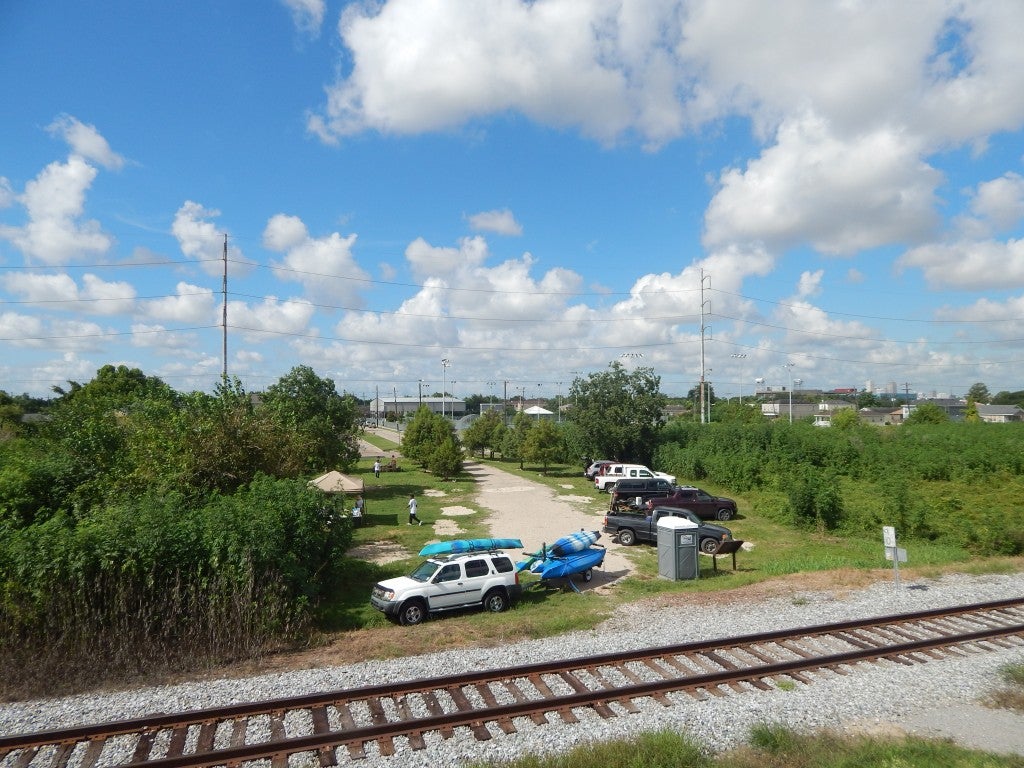 Birdseye view of the city from the viewing platform.
Birdseye view of the city from the viewing platform.
The platform also helps us remember the cost of losing our wetlands as it also looks back over the once dense residential neighborhood that was devastated by Hurricane Katrina almost 11 years ago. The damage caused by the MRGO not only greatly contributed to the degradation of the Bayou Bienvenue Wetland Triangle but also led to the destruction of tens of thousands of acres of wetlands that had once acted as a buffer from storm surge for communities such as the Lower Ninth Ward.
The local community in the Lower Ninth Ward, groups like the CSED and the MRGO Must Go Coalition, have worked hard in the past 11 years to reconnect the wetlands and the Triangle back to the neighborhood. Since the MRGO channel was closed to navigation with construction of a rock dam in 2009, conditions are slowly returning back to a fresher state, preparing the area for coastal restoration efforts. Today the platform is an important resource for the community that uses the bayou for fishing, kayaking and education about coastal issues. The community continues to fight for the restoration of the Wetland Triangle and surrounding ecosystem, which, with restoration, can again provide an example of the power of the natural environment in protecting both wildlife and people in New Orleans and across the Louisiana coast.
As Senior Outreach Coordinator, Samantha Carter works to develop and implement outreach and engagement strategies to advance the priorities of the Mississippi River Delta Restoration Program for the National Wildlife Federation. Focusing on the Greater New Orleans area, she educates and engages community leaders and other key stakeholders, including elected officials and neighborhood associations, to address the alarming loss of coastal wetlands in Louisiana. Additionally, Samantha helps coordinate the MRGO Must Go Coalition – a group of 17 environmental, community, and social justice organizations working to restore the degraded wetland ecosystem that protects the Greater New Orleans area from storm surge.
